Censorship Industrial Complex
Jordan Peterson agrees to social media ‘training’ mandate to defend free speech for all Canadians
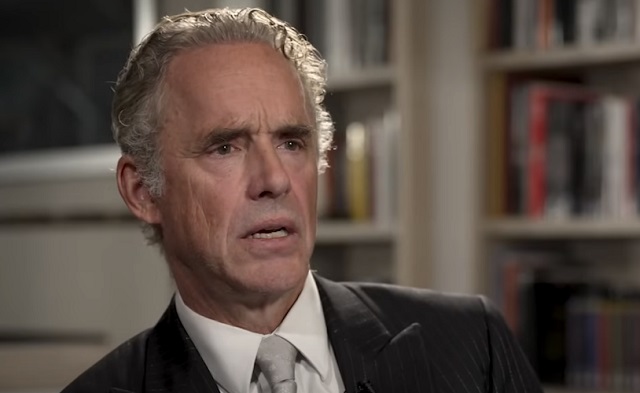
From LifeSiteNews
The Canadian author and psychologist revealed that he will undergo ‘re-education’ mandated by the College of Psychologists of Ontario to fight for Canadian professionals who are not able to stand up to the mob.
Dr. Jordan Peterson accepted the College of Psychologists of Ontario’s (CPO) social media “training” as a way to defend free speech for all Canadians.
In an op-ed published September 14th by the National Post, the best-selling Canadian author and clinical psychologist who gained fame for his opposition to compelled speech and gender ideology, announced that he will undergo the social media “training” mandated by the CPO for challenging the LGBT agenda.
“I have accepted the college’s ruling, even though the so-called ‘social media experts’ recommended by that board are members of a profession that does not exist, and that there is no evidence whatsoever that their recommendations for altering my behaviour, whatever they might be, will have any effect whatsoever on improving my ability to function as a professional psychologist,” he wrote.
Last August, the regulatory body mandated that he undergo social media “training” after complaints related to his posts social media opposing gender ideology, specifically the mutilation of children. Peterson was threatened with the removal of his clinical license if he refused the training.
Peterson has spent months fighting the CPO’s mandate. His case made its way to the Supreme Court of Canada. However, in early August, the court rejected Peterson’s appeal, leading him to finally agree to the re-education program.
Peterson explained that he is “financially independent” and does not need his license to support himself, having closed his clinical practice some time ago.
Nevertheless, he declared that he will not leave quietly, instead fighting for other professionals who do not have the resources to stand up against the LGBT mob.
“However, this is not only about me, since all regulated professionals in our fair country find themselves in the same leaky boat I currently occupy,” he explained.
“Thus, if I capitulate in any manner — if I simply resign, if I settle in any other way without addressing the public issues that have been raised by the case — then all the engineers, teachers, lawyers, physicians, psychologists etc. in Canada remain at risk for reputation, financial security and livelihood every time they dare open their mouths,” he warned.
“How can Canadians possibly remain well served by those very professionals when they risk everything every time they dare offer their genuine opinions on such matters, say, as the gender identity of a confused adolescent (psychologically), or when they wish to express skepticism about some new wonder drug or treatment pushed forward by the pharmaceutical cabal, walking hand in hand with the very regulators they have captured (medically)?” he questioned.
Peterson also repeated his pledge to publicize “the details of this charade as widely and effectively as possible.”
“There is no bloody way I am going to allow my professional organization to maneuver as they prefer behind closed doors, in the secretive style all petty tyrants prefer,” he declared.
Censorship Industrial Complex
Decision expected soon in case that challenges Alberta’s “safe spaces” law

The Justice Centre for Constitutional Freedoms announces that the Alberta Court of Appeal will soon release its decision in a case challenging whether speaking events can be censored on the basis of potential “psychological harm” to an audience, infringing Charter-protected freedoms of expression (section 2(b) and peaceful assembly (section 2(c).
This case stems from the University of Lethbridge’s January 30, 2023, decision to cancel a speaking event featuring Dr. Frances Widdowson, who has frequently challenged established narratives on Indigenous matters.
In written argument filed in 2024 the University claimed it cancelled the event, in part, because it had obligations under Alberta’s Occupational Health and Safety Act to ensure a workplace free of “harassment” and free of hazards to “psychological and social wellbeing.”
Lawyers argue that these provisions (which might be described as a “safe spaces” law) compel employers to censor lawful expression under threat of fines or imprisonment.
Constitutional lawyer Glenn Blackett said, “Safe spaces provisions are a serious threat to Charter freedoms. Employers who don’t censor ‘unsafe’ speech are liable to be fined or even jailed. This isn’t just the government censoring speech, it is the government requiring citizens to censor one another.”
Given the University’s defence, lawyers asked the Court of King’s Bench of Alberta to allow an amendment to the lawsuit to challenge the constitutionality of the “safe spaces” laws. However, the Court denied the request. According to the Court’s apparent reasoning because the safe spaces law is worded vaguely and generally, it is immune from constitutional challenge.
Mr. Blackett says, “I think the Court got things backwards. If legislation infringes Charter rights in a vague or general way, infringements become impossible to justify – they don’t become Constitution-proof.”
Widdowson and co-litigant Jonah Pickle appealed the ruling to the Alberta Court of Appeal, which heard argument on Monday. A decision from the Court of Appeal is expected soon.
Banks
Debanking Is Real, And It’s Coming For You
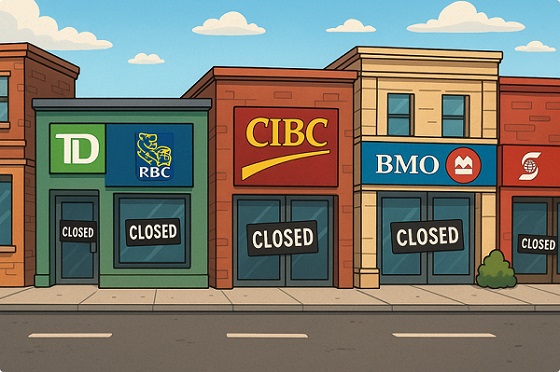
From the Frontier Centre for Public Policy
Marco Navarro-Genie warns that debanking is turning into Ottawa’s weapon of choice to silence dissent, and only the provinces can step in to protect Canadians.
Disagree with the establishment and you risk losing your bank account
What looked like a narrow, post-convoy overreach has morphed into something much broader—and far more disturbing. Debanking isn’t a policy misfire. It’s turning into a systemic method of silencing dissent—not just in Canada, but across the Western world.
Across Canada, the U.S. and the U.K., people are being cut off from basic financial services not because they’ve broken any laws, but because they hold views or support causes the establishment disfavors. When I contacted Eva Chipiuk after RBC quietly shut down her account, she confirmed what others had only whispered: this is happening to a lot of people.
This abusive form of financial blacklisting is deep, deliberate and dangerous. In the U.K., Nigel Farage, leader of Reform UK and no stranger to controversy, was debanked under the fig leaf of financial justification. Internal memos later revealed the real reason: he was deemed a reputational risk. Cue the backlash, and by 2025, the bank was forced into a settlement complete with an apology and compensation. But the message had already been sent.
That message didn’t stay confined to Britain. And let’s not pretend it’s just private institutions playing favourites. Even in Alberta—where one might hope for a little more institutional backbone—Tamara Lich was denied an appointment to open an account at ATB Financial. That’s Alberta’s own Crown bank. If you think provincial ownership protects citizens from political interference, think again.
Fortunately, not every institution has lost its nerve. Bow Valley Credit Union, a smaller but principled operation, has taken a clear stance: it won’t debank Albertans over their political views or affiliations. In an era of bureaucratic cowardice, Bow Valley is acting like a credit union should: protective of its members and refreshingly unapologetic about it.
South of the border, things are shifting. On Aug. 7, 2025, U.S. President Donald Trump signed an executive order titled “Guaranteeing Fair Banking for All Americans.” The order prohibits financial institutions from denying service based on political affiliation, religion or other lawful activity. It also instructs U.S. regulators to scrap the squishy concept of “reputational risk”—the bureaucratic smoke screen used to justify debanking—and mandates a review of past decisions. Cases involving ideological bias must now be referred to the Department of Justice.
This isn’t just paperwork. It’s a blunt declaration: access to banking is a civil right. From now on, in the U.S., politically motivated debanking comes with consequences.
Of course, it’s not perfect. Critics were quick to notice that the order conveniently omits platforms like PayPal and other payment processors—companies that have been quietly normalizing debanking for over a decade. These are the folks who love vague “acceptable use” policies and ideological red lines that shift with the political winds. Their absence from the order raises more than a few eyebrows.
And the same goes for another set of financial gatekeepers hiding in plain sight. Credit card networks like Visa, American Express and Mastercard have become powerful, unaccountable referees, denying service to individuals and organizations labelled “controversial” for reasons that often boil down to politics.
If these players aren’t explicitly reined in, banks might play by the new rules while the rest of the financial ecosystem keeps enforcing ideological conformity by other means.
If access to money is a civil right, then that right must be protected across the entire payments system—not just at your local branch.
While the U.S. is attempting to shield its citizens from ideological discrimination, there is a noticeable silence in Canada. Not a word of concern from the government benches—or the opposition. The political class is united, apparently, in its indifference.
If Ottawa won’t act, provinces must. That makes things especially urgent for Alberta and Saskatchewan. These are the provinces where dissent from Ottawa’s policies is most common—and where citizens are most likely to face politically motivated financial retaliation.
But they’re not powerless. Both provinces boast robust credit union systems. Alberta even owns ATB Financial, a Crown bank originally created to protect Albertans from central Canadian interference. But ownership without political will is just branding.
If Alberta and Saskatchewan are serious about defending civil liberties, they should act now. They can legislate protections that prohibit financial blacklisting based on political affiliation or lawful advocacy. They can require due process before any account is frozen. They can strip “reputational risk” from the rulebooks and make it clear to Ottawa: using banks to punish dissenters won’t fly here.
Because once governments—or corporations doing their bidding—can cut off your access to money for holding the wrong opinion, democracy isn’t just threatened.
It’s already broken.
Marco Navarro-Genie is vice-president of research at the Frontier Centre for Public Policy and co-author, with Barry Cooper, of Canada’s COVID: The Story of a Pandemic Moral Panic (2023).
-

 Alberta2 days ago
Alberta2 days agoOttawa’s destructive federal energy policies and Premier Danielle Smith’s three part solution
-

 Agriculture2 days ago
Agriculture2 days agoIn the USA, Food Trumps Green Energy, Wind And Solar
-
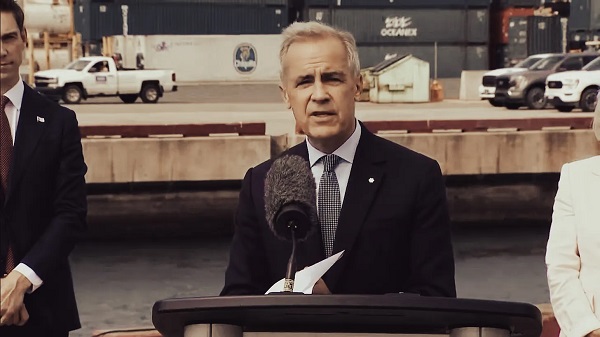
 Business1 day ago
Business1 day agoMark Carney’s Climate Competitiveness Pitch Falls Flat
-

 Banks2 days ago
Banks2 days agoDebanking Is Real, And It’s Coming For You
-

 Business22 hours ago
Business22 hours agoCanada Post is broken beyond repair
-

 Canadian Energy Centre2 days ago
Canadian Energy Centre2 days agoEmissions cap will end Canada’s energy superpower dream
-
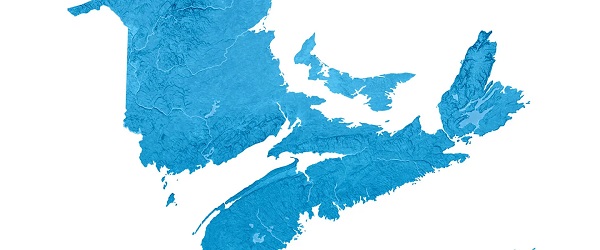
 Alberta24 hours ago
Alberta24 hours agoMaritime provinces can enact policies to reduce reliance on Alberta… ehem.. Ottawa
-
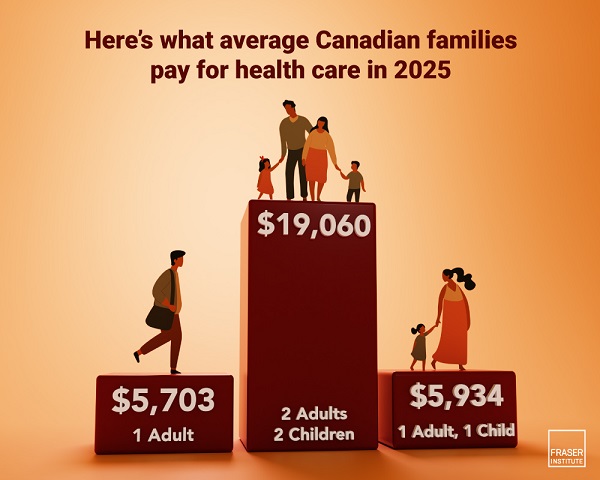
 Business21 hours ago
Business21 hours agoHealth-care costs for typical Canadian family will reach over $19,000 this year






